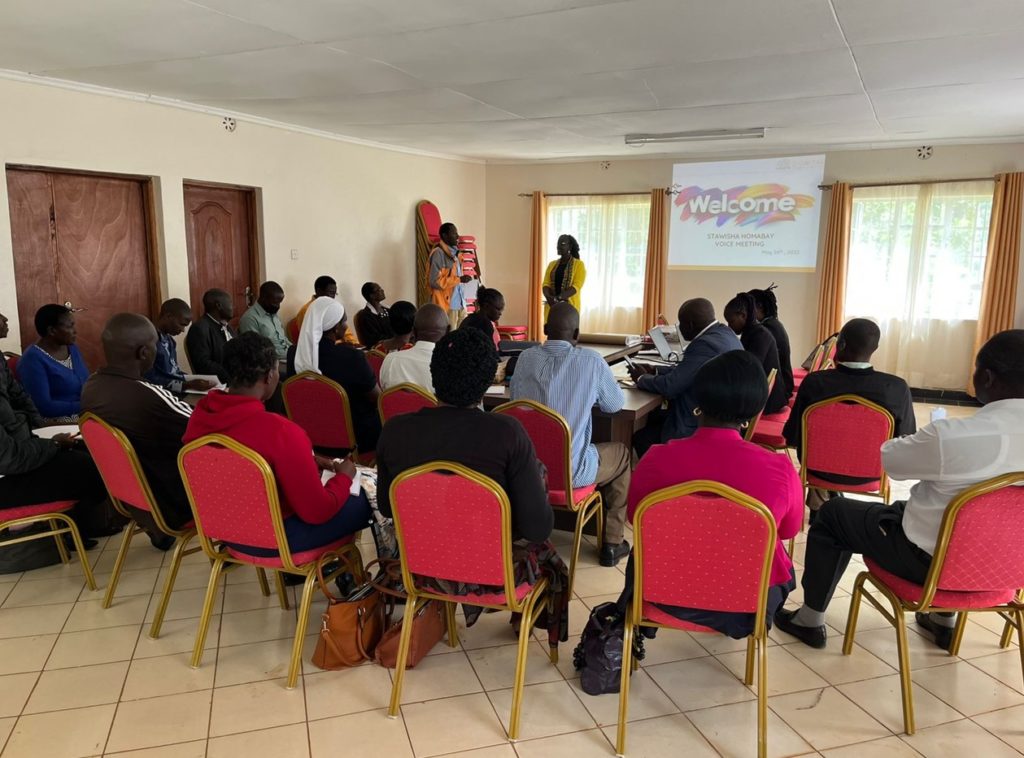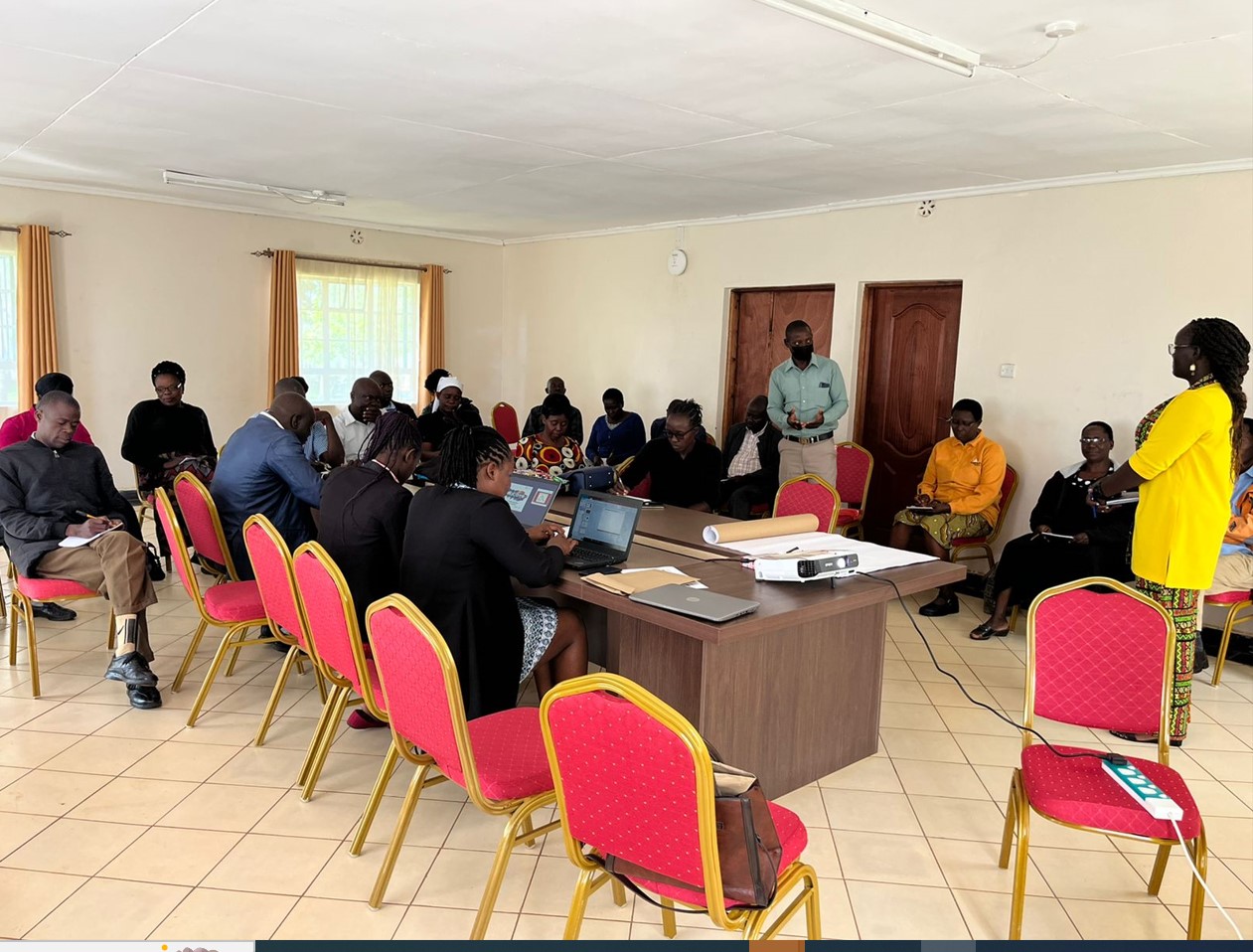By Roselynn Awili – Program Director
‘If you want to go fast, go alone. If you want to go far, go together’ is a famous African proverb which is used to associate long lasting success with the ability to walk with others. Living up to this mantra, Dignitas launched VOICE (Valuing Our Insights, Collaborations & Evidence) in the second quarter of the year, with our Homabay cohorts (Ringa and Ramba zones). VOICE intends to use a collaborative approach to support program design by giving stakeholders an opportunity to ‘voice’ their ideas, opinions, insights, challenges and experiences. Most importantly, through VOICE it is intended that cultures and systems will change for greater impact and experience for learners.
VOICE engages various key education stakeholders such as curriculum support officers (CSO’s), quality assurance officers, directors of education at county and sub-county levels as well as representation of school leaders and teachers from the various clusters. Together with the Dignitas team, transparent and open discussions are held reflecting on data on the status of learning within the region.
In this first engagement with the HB cohort, the conversations attracted the ear of the Deputy County Commissioner of Homabay who had graciously accommodated the team in his boardroom. In his remarks, he commended the team and emphasized the need for such open and pragmatic discussions for the benefit of our children. The agenda focused on reviewing school data results from the sub-county in terms of learner assessments, school leader competencies in instructional leadership, classroom culture and learner engagement. The goal was to ensure that by the end of the event, the team came up with a data-driven, co-implementation model to the Stawisha program.
Data collected from alumni cohorts in the locality indicated that the use of data by school leaders to inform instruction was a key area that needed support. Invited stakeholders emphasized that data collected, baseline and endline, was resourceful in making curriculum support decisions.
Some of the reactions from this particular meeting were: From the CSO’s: A stronger commitment to support the implementation of Competency-Based Curriculum (CBC), data on lesson planning and execution from the 2020/2021 cohorts was reviewed. The CSO’s recommended that teachers could still improve through Professional Learning Communities (PLCs). Teacher representatives in agreement presented that,
“Teachers need to implement all they have been trained on for real impact. Not only to show case these to the coaches or CSOs. It is not enough for schools to have good records; schools need to implement the good practices. “
(Tr. Aloyce Juma -Ringa Primary School-Homabay Cohort, 2022)

To support effective PLCs, the education officers agreed to make copies of classroom observation tools and rubrics accessible to school teams. This ensures teachers are aware about the areas of support, plus indicators for the highest expected practices. In teams, classroom observation tools were reviewed. In the end, it emerged that most schools in the locality still needed upskilling in documenting and actionizing child protection policies.
As a next step to foster peer learning, all stakeholders agreed to support schools in the formation of Stawisha clusters. In the same way school teams had found value in school-based PLCs, the clusters would enlist PLC best practices at a wider scale amongst neighbouring schools. Through modelling best practices for school leadership, Dignitas believes that true transformation is achievable across systems.
As part of the closing statements Tr. Daniel Ayondo of Owiro Primary shared the following feedback, ““The coaches and facilitators today were knowledgeable in content. They showed us what to do through modelling expected behaviour during the workshop. These learner-centered approaches we will take back to school and use them to engage our learners in their own knowledge creation” .

